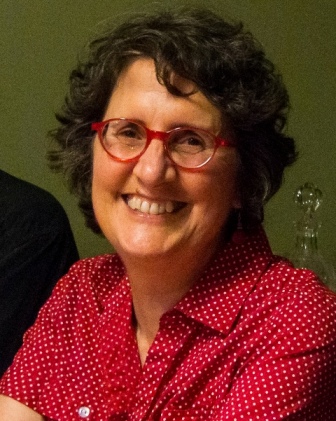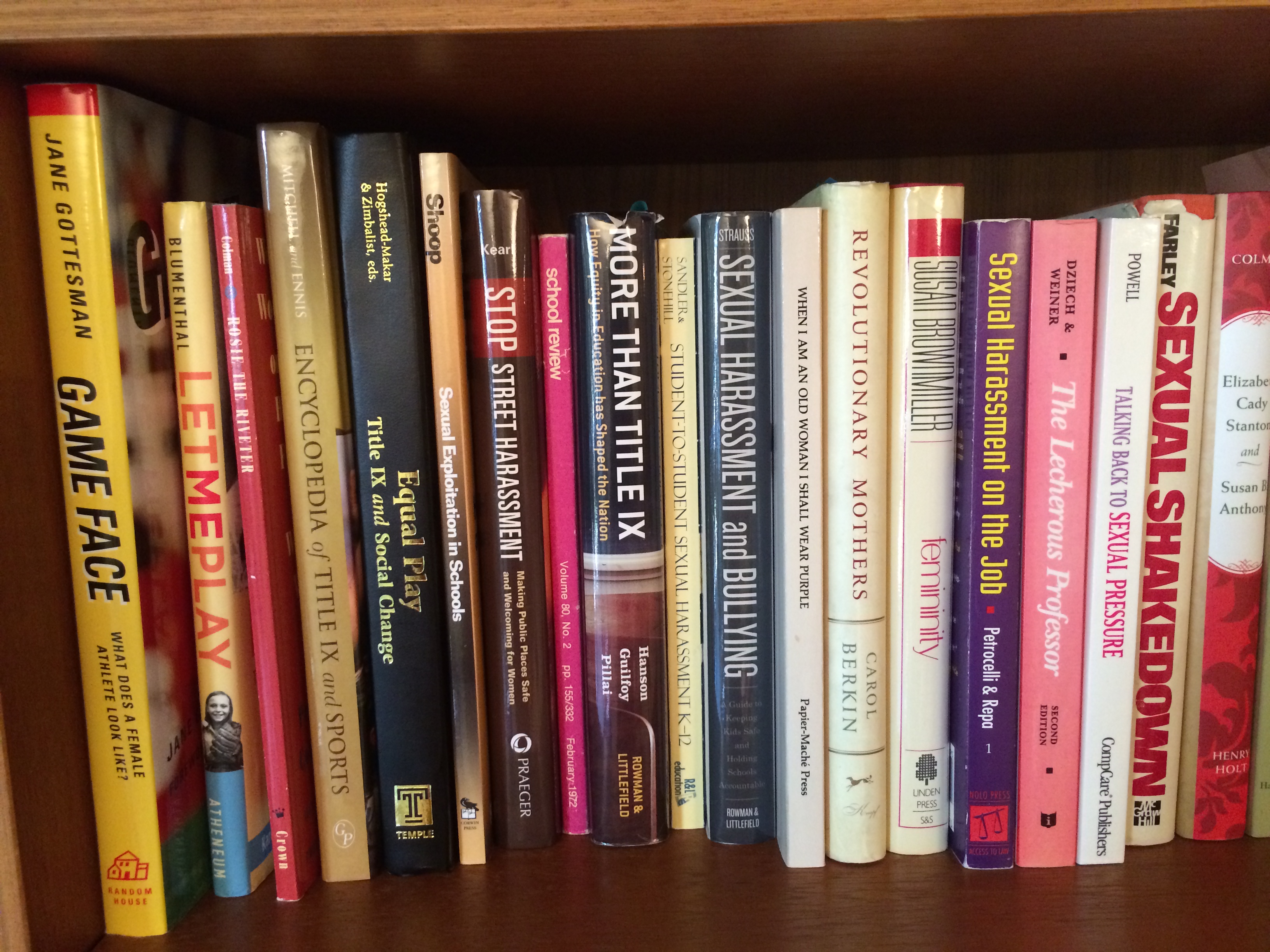Name this book
I’m in the final edits of my manuscript that tells the story of 50 years of Title IX, the law that prohibits sex discrimination in federally funded education. I’m searching for a new title; what should I name this book?
As a place-holder, I’ve been calling it Uppity Women: Title IX and the Ongoing Fight for a Fair Education. The book follows three main people over decades to tell Title IX’s broader story — Bernice Sandler, Pamela Price, and Diane Milutinovich — as well as some of the Title IX activists who emerged in the past 10 years to push the issue of campus sexual assaults to the forefront. Sandler loved handing out buttons with a slogan from the late 1960s/early 1970s, “Uppity Women Unite.” She distributed thousands during her lifetime. Used since at least the 1800s, “uppity” described anyone who “didn’t know their place” in our stratified society. Some feminists reclaimed the term, rejecting the constricted lives designed for them by people with more power.
Here’s the thing, though. By far the most common usage of this adjective, from the 1800s to today, applied it to Black people. The word is inseparable from its racial connotations. It evokes other racist slurs and attacks that are harmful to Black Americans. I think many feminists who reclaimed “uppity women” knew this; they were inspired by the Civil Rights Movement and adopted many of the same strategies, including reclaiming pejoratives to flip the meanings of words. But we’ve gained a better understanding since then of how white feminists sometimes claim to speak for all women without acknowledging the intersectional discriminations that burden women of color or other marginalized women.
In my mind, “Uppity Women” doesn’t work as the title of this book for two reasons: 1) Even though many Title IX activists were or are women of color, the phrase could be seen as white women appropriating a term without adequately acknowledging its meanings for Black women, and 2) Title IX is about much more than women. It protects men and non-binary people from sex discrimination in education too.
I felt deeply gratified to receive this encouragement from my editor at The New Press after she read a first draft of my manuscript: It has “riveting stories, close attention to multiple characters, and a keen eye to thinking about diversity of experiences within the broader story of Title IX… [It is] a model for the type of feminist story-telling I have often envisioned: refraining from star-making, intersectional in its approach, and grounded in the vital questions of feminism today.”
So, I think I’ve got a lot of the manuscript right, and our final edits will make it even better, but I need a new title. What title would catch your eye in a bookstore or online? Leave a comment or contact me with your ideas. If we end up using your suggestion, I’ll enter you in a raffle for a free copy of the book when it launches in 2022. Help me name this book.






I don’t have a new title idea, but I agree with you about your concerns about the working title. I know you’ll find a great one!
Thanks, Theresa.
3 Pals Changed It All: Title IX, Or What your life would look like without Title IX, Or And you thought you understood Title IX
Thanks, Judith.
I have a 50% answer: Something using “unentitled” to play against Title IX? Like Unentitled: Championing Equality
Thanks, Laszlo.
I’m so excited for this book and beyond proud of you and all the HARD WORK that went into it! No idea for the title – I just love you ♥️
I love you too!
Hard one! Gender Warriors? Breaking Glass? Think Like a Girl? Fight Like a Girl?
Maybee “The Complete History of Title IX: How a girl changed it all” or something like that?
How about “The IX Factor”?